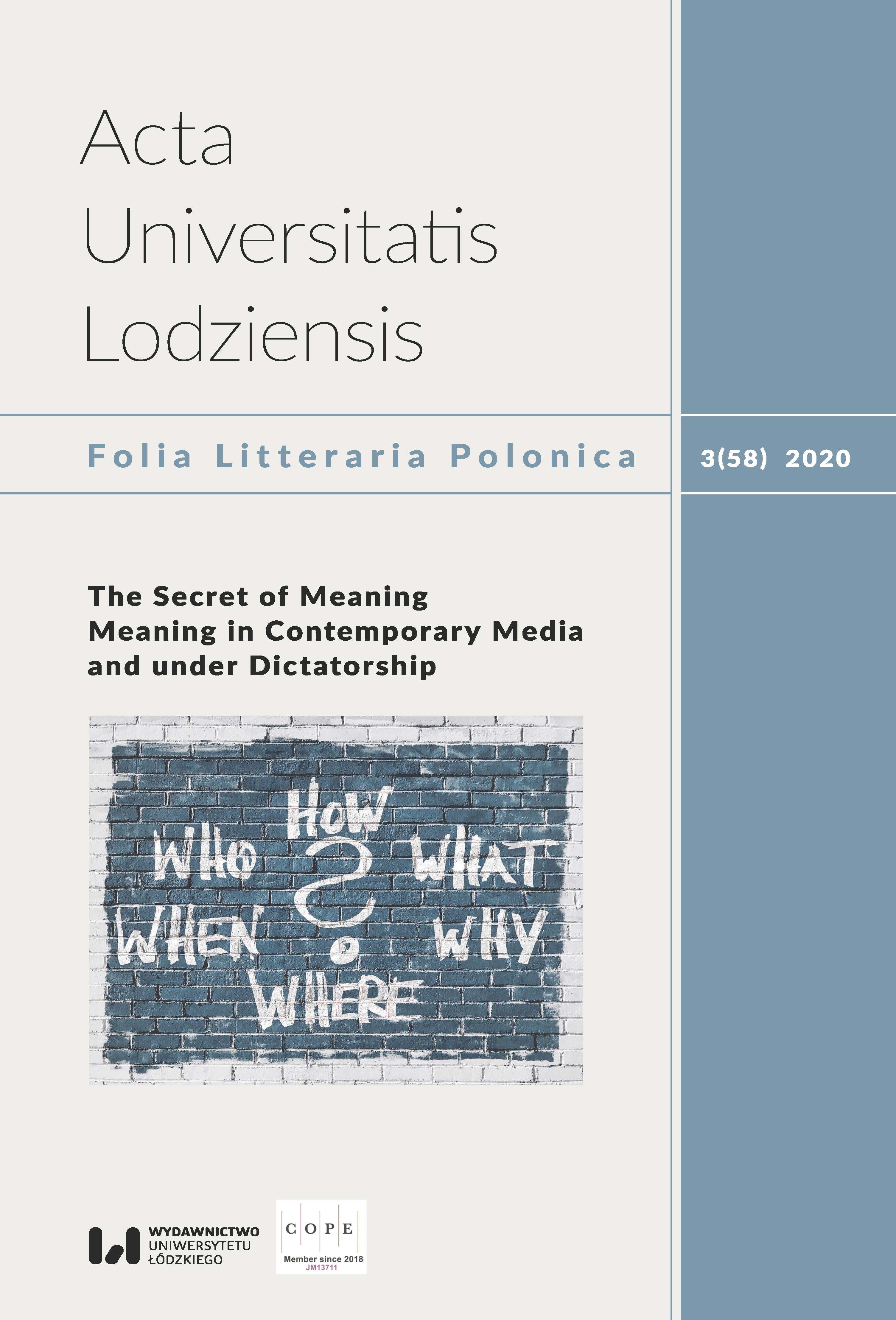Henryk Sienkiewicz’s output and literary censorship in the DDR
Henryk Sienkiewicz’s output and literary censorship in the DDR
Author(s): Marek RajchSubject(s): Language and Literature Studies, Polish Literature
Published by: Wydawnictwo Uniwersytetu Łódzkiego
Keywords: literary censorship; Polish literature; cultural policy; the DDR
Summary/Abstract: Works by Henryk Sienkiewicz, a Polish writer and the winner of the 1905 Nobel Prize for Literature, were subjected to verification by the DDR’s censorship apparatus several times. Censors considered his novellas which discussed 19th-century social issues as desirable and worth promoting among East German readers. His novel Krzyżacy, which was set in the Middle Ages, was accepted eagerly both by publishing houses and the censorship office as it enabled national socialism in Germany to be viewed in critical terms, as the DDR distanced itself from the system. Reviewers did, however, find a major ideological threat for young readers in East Germany in a young adult novel entitled W pustyni i w puszczy, and for that reason it was withdrawn from the publishing procedure.
Journal: Acta Universitatis Lodziensis. Folia Litteraria Polonica
- Issue Year: 58/2020
- Issue No: 3
- Page Range: 421-434
- Page Count: 14
- Language: English

